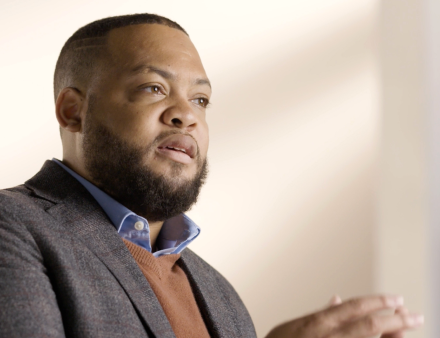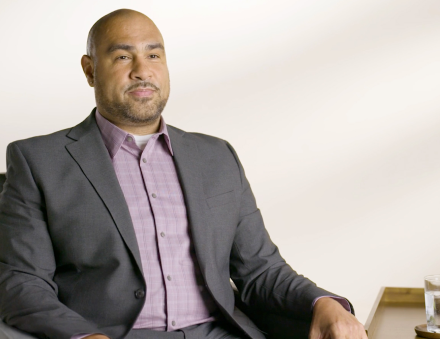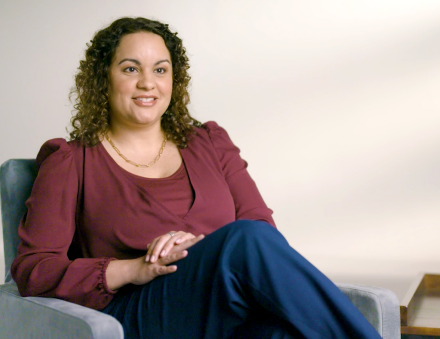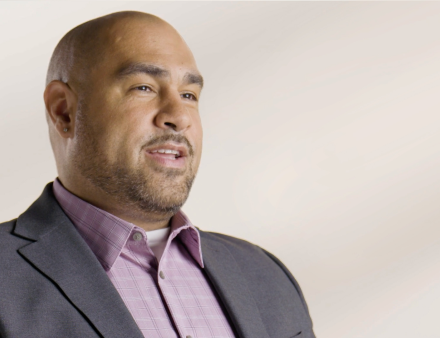Introduction [0:02]
My name is David Malebranche. My training is in general internal medicine, but as well as specialty in HIV.
I practiced for about 20 years in academic settings.
I live in Atlanta, Georgia, currently, and my position at Gilead Sciences is senior director of Global HIV Medical Affairs.
HIV diagnoses and PrEP use in young MSM [0:25]
According to the 2020 CDC estimates, about 3 out of every 5, or 60%, of new HIV diagnoses in this country are among young MSM, or men who have sex with men, between the ages of 13 and 34.
Now, if you shift gears and look to who is actually getting PrEP, it's not that same population. So only 23% of young men who have sex with men ages 16 to 34 are receiving PrEP.
Some of the barriers that I see commonly among young men who have sex with men when it comes to PrEP uptake have partly to do with what's going on in their individual lives and then what happens once they get into the clinical setting.
So with regards to their individual lives, you're dealing with stigma, especially with young people. They're still figuring out what they like sexually.
And then when they get into the office setting, you basically have some providers that will still ask them questions when they say, “Hey, I want to explore PrEP for HIV prevention.” And people will say, “Well, why don't you just use a condom?”
So, when you hear that immediately, that's a huge barrier because you know, at that point, that the person that you trust to get you HIV prevention is not gonna be receptive to what you're saying.
Approaching sexual health conversations with young MSM [1:39]
HIV prevention is a part of our overall sexual health approach and, for me, it's just a matter of really starting as a clinician with a sexual history and having a conversation with patients or individuals that really makes them feel comfortable.
Particularly when we focus on young men who have sex with men, I'm thinking about some of the experiences that they may have had, with society, with discrimination on different levels.
So, I want to be very sensitive to the stigma part of it.
The 3 tenets I use with a sexual health conversation is 1, to normalize it—let them know that these are questions that we talk about with everybody.
2, explain the rationale so they understand that this helps me take better care of you as a provider. And then 3, you want to reassure them. So let them know that this conversation that's happening between you and them is gonna be private.
Engaging young MSM in HIV prevention conversations [2:32]
The new CDC guidelines upgraded from previous versions…instead of using specific labels of people and groups that would benefit from PrEP, they actually expanded the language to include anyone who is sexually active—adults or adolescents.
It completely changes the game. And so, as clinicians, instead of just looking at people to see if they fit in those boxes about who would benefit from PrEP, it opens it up and encourages us to just have a general sexual health conversation.
MSM may not be a sexual identity that patients actually jive with. And then as far as risk is concerned, when people are having sex, whether it's condomless or not, no one likes to hear that they're necessarily engaging in risky sex.
Our role as healthcare providers is not to be the condom police. We're supposed to listen to what our patients tell us and use our best knowledge and experience to give them the best options for them and their sexual partners.
You want to encourage PrEP for HIV prevention, but you also want to encourage that they adopt or explore other safer sex practices at the same time. Education on condom use is important in helping to protect individuals from STIs.
An opportunity to connect with young individuals [3:50]
Providers may only get one chance to build trust and rapport with patients.
What you say to them can be life-changing and life-affirming instead of the negative messaging they receive every day.
This is that one person, this is that one moment that they have, and you have an opportunity to either turn them away or help them become more engaged.



